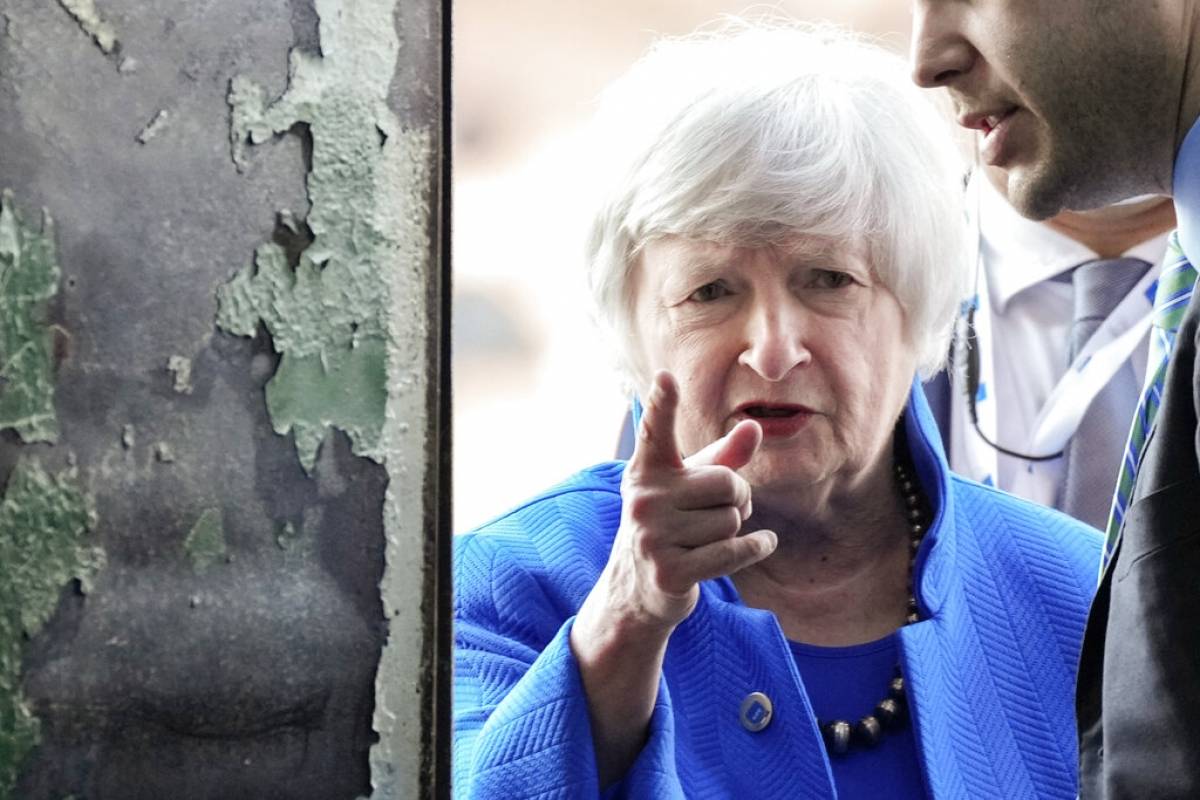The United States demands that competition not be based on low taxesائب

Do not encourage the use of tax havens It would allow countries to compete on their economic fundamentals instead of offering lower rates that deprive governments of money for infrastructure and education, United States Treasury Secretary Janet Yellen.
Yellen’s comments came after the finance ministers of the world’s 20 largest economies endorsed A corporate minimum of not less than 15%. The measure is intended to set a minimum tax rate and discourage companies from turning to low-tax countries as tax havens.
“This agreement will end the race to the bottom,” he told a news conference after the meeting in Venice.
Rather than asking the question ‘Who can offer the lowest tax rate?’ “This will allow all of our countries to compete on their economic fundamentals, with the skill of our workforce, our ability to innovate, and the strength of our economic legal institutions,” he emphasized.
“This will give our countries the ability to raise the necessary financing for important public goods such as infrastructure, research and development and education,” he added.
The proposal for a global minimum faces political and technical hurdles before it can be implemented. Details are due to be finalized in the coming weeks at the Organization for Cooperation and Development in Paris, before the G20 chiefs and prime ministers at a meeting on October 30-31 in Rome.
Each state would then have to legislate the rate on its own. The idea is that countries where companies are headquartered tax foreign income at home if that income is tax-exempt in countries with low taxes. This would remove the incentive to use complex tax systems to bring in profits for subsidiaries in low-tax countries where the companies actually do little or no business.
We recommend this story about Puerto Rico and these global moves:
The US already has a similar tax on foreign earnings, but the rate is lower than the new low of 15%. Republican members of Congress have opposed President Joe Biden’s plan to raise the profit rate of foreign companies to 21% to help pay for infrastructure investments and clean energy. The Democratic president has a slim majority in Congress.
We recommend this related note:
Tax exemption failure of Law 22
The jobs and economic impact that the lawmakers expected never happened. From being a tool to attract millionaires and foreign investment, Law 22 has become a haven for crypto enthusiasts, YouTube personalities, and advisors.
Three EU countries involved in the talks have refused to agree to a minimum threshold for it. Ireland, Hungary and Estonia could block their adoption in Europe, where EU tax issues require consensus. Ireland, which relies part of its economic model on low taxes, said the rate of 12.5% is fair.
The G20 proposal also gives countries the right to tax a portion of the profits of large global companies that earn money in their jurisdiction but do not have a physical presence there, such as e-commerce and digital advertising companies.
Some countries, led by France, have begun to impose such taxes on American technology companies such as Google and Amazon. The United States considers these taxes unfair tax practices and has threatened retaliation in the form of import tariffs. Under the tax agreement, countries would waive those taxes in exchange for a common global strategy.




